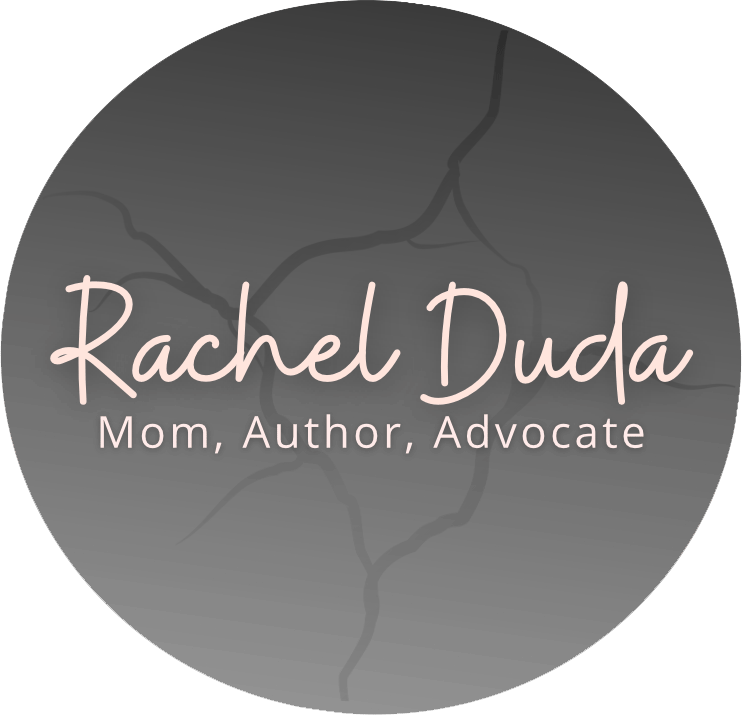April 2 is World Autism Awareness Day
- Rachel Zirkin Duda

- Apr 2, 2025
- 4 min read
Until recently, I had no idea there was an official day (or month, for that matter) dedicated to autism awareness. Seth wasn't diagnosed with ASD until he was sixteen years old (nearly five years ago), so I wasn't really aware of how much autism had affected both of our lives until then. As for me, I already knew I had ADHD and SPD (sensory processing disorder in the form of dyspraxia), but I was recently diagnosed with autism as well. Well, what do you know? When it comes to neurospiciness, I am a triple threat! Go me!

All kidding aside, here is a brief history lesson about autism (and its connection to April) in bullet points. According to the article "Autism Acceptance Month: The History and Impact" by Steve Fierello,
"Autism was first coined as a concept in 1911 by Eugen Bleuler, a psychiatrist who also created the concept of schizophrenia. Bleuler had initially defined [autism] as a symptom of severe schizophrenia, characterizing it as fantasizing and hallucinating in an attempt to avoid certain realities".
In 1943, another psychiatrist, Leo Kanner of Johns Hopkins University, described children with autism as "having obsessiveness and echolalia, as well as having a better relation to objects than to people. He suggested that these children used language in a particularly literal manner and struggled to physically relate to others". So, like Bleuler, Kanner also saw autism as a form of schizophrenia.
Then, for a while, the focus shifted to mothers. According to Fierello, "In the 1950s and 1960s, a psychologist named Bruno Bettelheim attributed autism in part to 'refrigerator mothers,' or those who did were cold and distant."
(Fortunately for moms like me - who were more like Easy Bake ovens with their children - that definition eventually faded away.)
Then, it was back to schizophrenia. In the second edition of the Diagnostic and Statistical Manual of Mental Disorders - or DSM, published in 1968 - autism was still referred to as "a form of pediatric schizophrenia involving a detachment from reality."
(Incidentally, it wasn't until the third edition of the DSM, published in 1980, that autism was finally separated from schizophrenia! I was ten years old by then. No wonder I was never diagnosed! Nobody recognized milder forms of autism back then.)
And now for the information you've been waiting for (or maybe not).
In the 1970s, the National Autism Society designated April to be "Autism Awareness Month."
In 2008, "the United Nations General Assembly unanimously decided to declare April 2nd as World Autism Awareness Day in an effort to highlight what is needed to help people with autism spectrum disorder lead their fullest lives."
(Admirable goal. Autism and autistic people can be very complex, but when we are treated the way we need to be treated, we can really shine.)
Three years later, in 2011, "the Autism Self-Advocacy Network began referring to April as Autism Acceptance Month, promoting not just education and awareness but also understanding and respect for people with autism spectrum disorder as people capable of living full and meaningful lives."
(That makes even more sense. Okay, history lesson over.)
Maybe this increased awareness (and, dare I say, acceptance) of autism is the reason why more and more people are realizing they are on the spectrum, too. If you had asked me two years ago if I thought I was autistic, I would have said no, absolutely not, but last year, someone I didn't know very well told me she had just been diagnosed with high-masking autism and suggested I look it up. When I did, I had an "aha" moment.
I believe that part of the reason I was "extra" traumatized by my childhood experiences was that I was forced to use all of my spoons to mask my neurodivergence (in addition to hiding all the horrible things that were happening to me behind the scenes) - and I was often unsuccessful. Back then, I was just labeled "too sensitive" or was told I was "overreacting." I was shamed at every turn - for having strong emotional responses to things that weren't my fault - things I had no control over. I was told that even though other people hurt me, I was responsible for fixing the damage. But I had no idea how to do that, and I was shamed for that as well.
No wonder it's been so hard for me to recover completely, but with this new awareness, I am continuing my journey to self-acceptance and self-love with my eyes wide open, so I am very grateful for that.
Incidentally, one way to show solidarity for World Autism Awareness Day is to wear blue. Since my hair is blue every day of the year, I guess for me, World Autism Awareness Day is every day! Happy April!






Comments